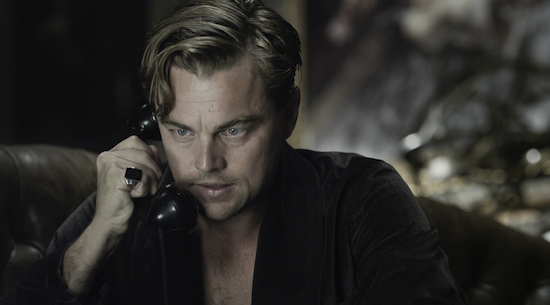Three Notes on Gatsby, The Great Gatsby, & Gatz, With a Coda
1.
I am definitely easily glamourised. I say this with no self-bloodied punchdrunk sadness or shame, because there is no human out there who is not easily made over by glamour. Among the billion differences between humans and other animals, there is the phenomenon of glamour. So if the world of fashion or the movies is having a Gatsby moment, then I have no quarrel with them. For even if the best way of being glamourised is to let yourself give in to it while also knowing that there is no substance to the object of your admiration, none at all – just as the best artwork is the one that absorbs you totally while also pointing very simply to its structure – this is a difficult thing to accomplish. It is difficult, definitely, for Nick Carraway to do in the summer he knows Gatsby. For glamour is charm gone hyper. And hypercharm is a difficult thing to resist.
But I wanted to say something else.
2.
Because glamour is this problematic structure, it’s really very difficult to demonstrate convincingly to other people in an artwork, like in a movie or a novel. If you want to make a portrait of glamour, you have the danger of too much glamour and not enough nothingness, or too much nothingness and not enough glamour. This was the problem Fitzgerald had when he was writing The Great Gatsby, and I am not sure really that he ever entirely solved it. There is something strange, after all, about a novel that is so clumsily reliant on flashback. There’s something strange about a novel that has to have a minor character talk backstory for an entire chapter. Yes, glamour is a literary problem, and that problem is always backstory. Because if you really think that Gatsby is charming, then morally you are a kook. While if you do think that Gatsby is just some manic criminal, then morally you are a klutz.
But I wanted to say something else.
3.
When Elevator Repair Service did their 8-hour enactment of The Great Gatsby, which they called Gatz, after Gatsby’s legal name, I was very much unprepared for what this would in fact mean. It turned out that it made the audience into practitioners of the closest reading in history. And this meant that this novel’s form started to emerge for me much more clearly than it ever had before. In this great work Gatz, I would say, the length of the novel’s ending in particular became clear. Because it takes so long, after Gatsby’s death, for the book itself to end. And I have always found this ending opaque, as if it were guarding its own secret. I have never quite been able to match the end to the beginning. But in that theatre, towards the end of eight hours, I suddenly had this euphoric sense that at last I could totally see it: I had the entire form there in my head! And then, maybe four minutes later, it was already gone. There was a structure, I was sure of it: and then that structure just disappeared.
Coda
So this is what I want to say. It’s really terrible when the instrument for analysing glamour is glamorous itself. It’s a crazy moment of infinity. That’s why, unless the world just spins away from its axis into outer space and everything explodes, every point in time from now on is going to be a Gatsby moment.
Adam Thirlwell’s Kapow! is published by Visual Editions, Baz Luhrmann’s The Great Gatsby is released 16th of May in the UK


